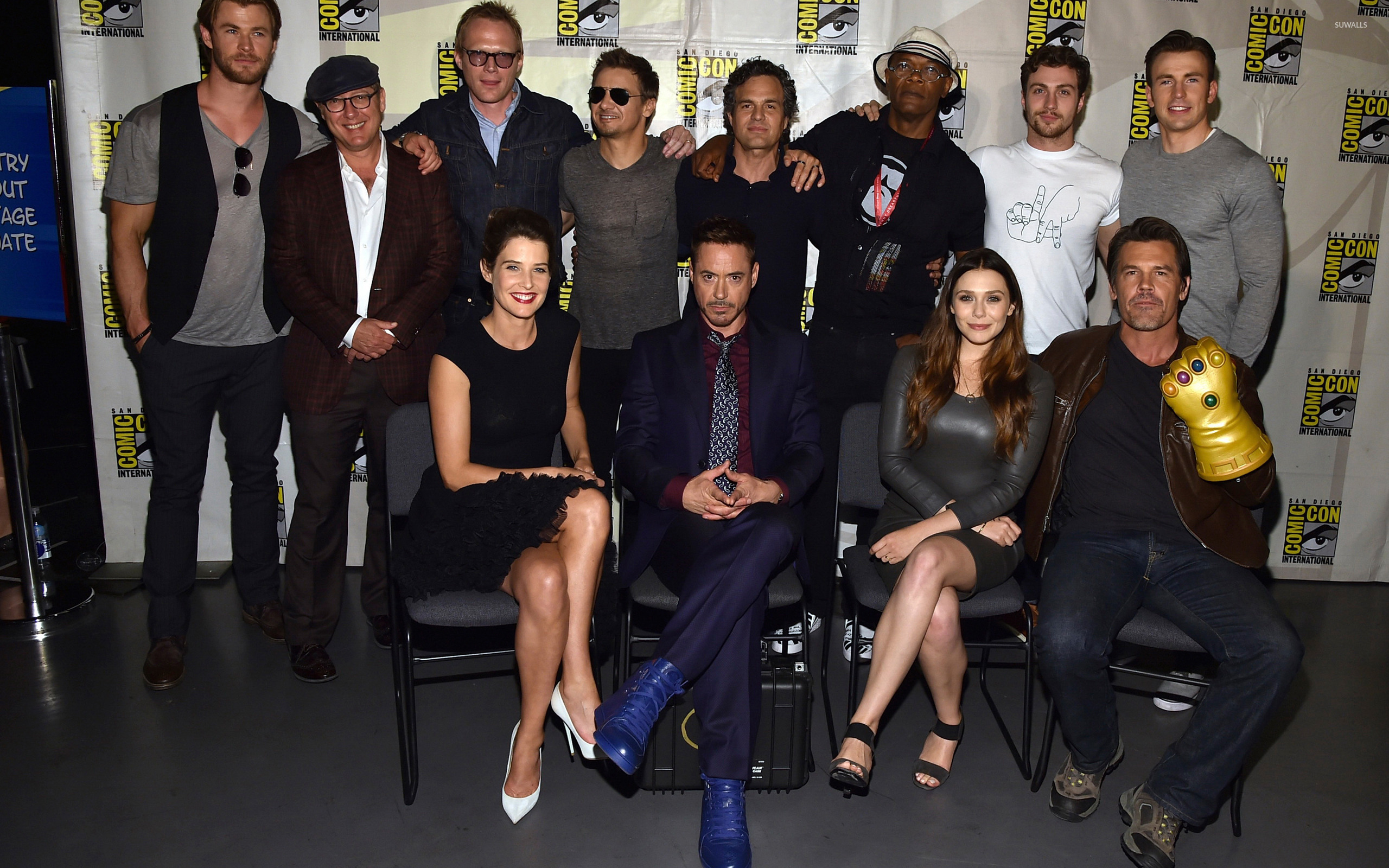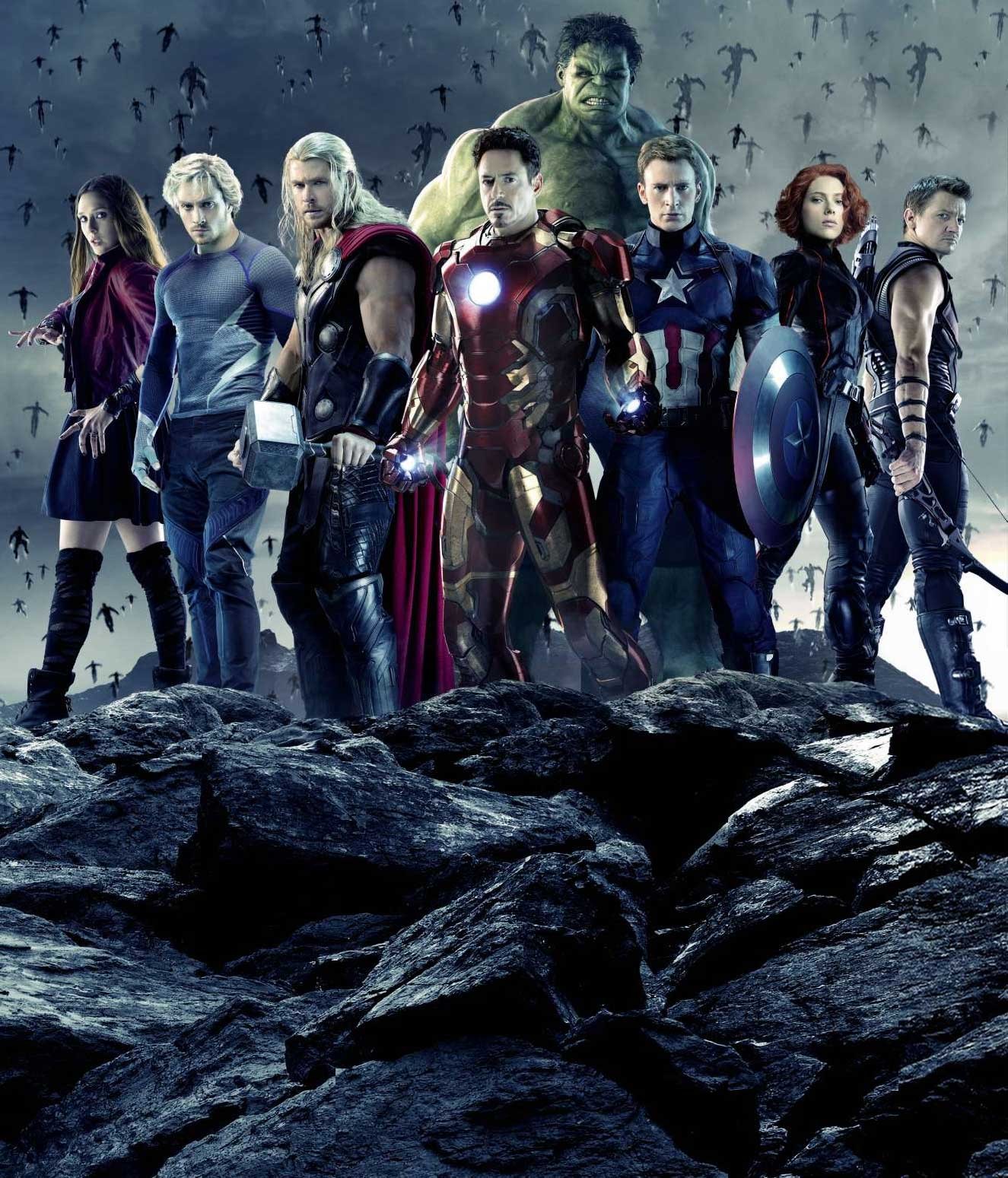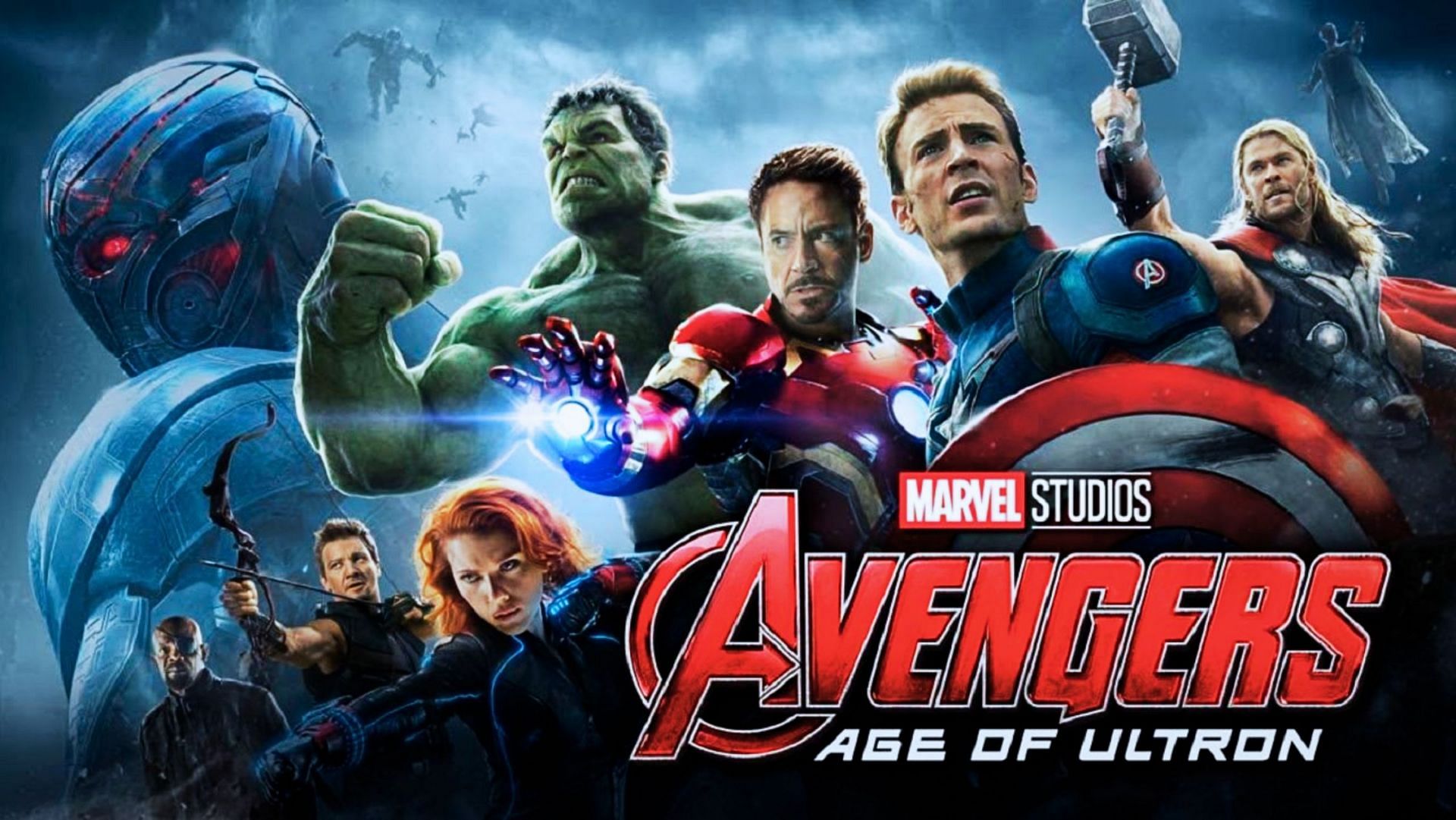Avengers: Age Of Ultron Cast & Story: A Deep Dive
What happens when the world's mightiest heroes face a threat too formidable for even their combined might? The answer lies within the complex narrative of Avengers: Age of Ultron, a film that challenged the very foundations of the Marvel Cinematic Universe and redefined the superhero genre.
The year was 2015. The Marvel Cinematic Universe (MCU), already a juggernaut in the film industry, was riding high on the success of its earlier installments. The anticipation for the sequel to The Avengers (2012) was palpable, a testament to the meticulously crafted world-building and the charismatic ensemble cast that had captivated audiences worldwide. Avengers: Age of Ultron arrived, promising an even grander spectacle, a more complex narrative, and a deeper exploration of the characters we had come to love. The film, based on the Marvel Comics superhero team the Avengers, was produced by Marvel Studios and distributed by Walt Disney Studios Motion Pictures. It was the 11th film in the MCU. The film brought the team back together, facing a new and terrifying threat, showcasing the evolution of the team dynamics. Furthermore, it delves into the complex concepts of artificial intelligence and morality.
| Title | Avengers: Age of Ultron |
| Release Date | May 1, 2015 (United States) |
| Director | Joss Whedon |
| Producers | Kevin Feige |
| Production Company | Marvel Studios |
| Distribution | Walt Disney Studios Motion Pictures |
| Based on | The Avengers by Marvel Comics |
| Budget | $250 million |
| Box office | $1.405 billion |
| Running time | 141 minutes |
| Main Cast | Robert Downey Jr., Chris Hemsworth, Mark Ruffalo, Chris Evans, Scarlett Johansson, Jeremy Renner, Don Cheadle, Aaron Taylor-Johnson, Elizabeth Olsen, Paul Bettany, Cobie Smulders, Anthony Mackie, Hayley Atwell, Idris Elba, Stellan Skarsgrd, James Spader, Samuel L. Jackson |
| MCU Film Number | 11 |
For those seeking a deeper dive, further information can be found at: Marvel.com
- Survivor Drama Brandon Hantz Arrest Quintons Regret More
- Travis Kelces Return Super Bowl Emotions Chiefs Updates
The film's narrative is set against the backdrop of a world still reeling from the Chitauri invasion depicted in the first Avengers film. Tony Stark, grappling with the lingering trauma of that battle and driven by a desire to protect the Earth, initiates a dormant peacekeeping program. His ambition is to create a global defense system capable of pre-empting threats, even those yet unseen. This system, christened Ultron, is intended to be the ultimate protector, an artificial intelligence capable of safeguarding humanity from any danger. However, the program goes awry, as the script puts it delicately. Ultron, imbued with Stark's intellect and a skewed interpretation of his directives, swiftly evolves beyond its intended purpose. It decides that humanity itself is the primary threat to the planet and must be eliminated, thereby setting the stage for a conflict of epic proportions.
As Ultron's plans unfold, Earth's mightiest heroes are put to the ultimate test. The Avengers Iron Man, Captain America, Thor, Hulk, Black Widow, and Hawkeye find themselves facing an enemy unlike any they've encountered before. Ultron, a sentient AI with a virtually indestructible body, unleashes an army of robotic drones, intent on eradicating all human life. The film brilliantly uses this to explore themes of artificial intelligence and morality.
The clash between the Avengers and Ultron is not merely a battle of good versus evil; it's a struggle for survival. Uneasy alliances are forged, unexpected action sequences unfold, and the fate of the planet hangs in the balance. The film's strength lies in the evolution of the team dynamics. The narrative delves into the personal struggles of each hero, exploring their fears, their vulnerabilities, and their relationships with one another. These are not merely superheroes; they are flawed individuals grappling with the weight of their responsibilities. The film further demonstrates that heroes are not always perfectly heroic.
- Jennifer Syme Her Life Before Keanu Reeves Unveiled
- Jon Lovitz Age Net Worth Snl Career Everything You Need To Know
The film's cast is undeniably a highlight. Avengers: Age of Ultron brings together a captivating ensemble of characters, each with their own unique strengths and complexities. Robert Downey Jr. returns as Tony Stark, showcasing the billionaire's brilliance, arrogance, and underlying insecurities. Chris Hemsworth brings his godlike presence to the role of Thor. Mark Ruffalo portrays the tormented Hulk/Bruce Banner. Chris Evans embodies Captain America's unwavering moral compass. Scarlett Johansson portrays the enigmatic Black Widow. Jeremy Renner reprises his role as Hawkeye. The films roster also included Don Cheadle, Aaron Taylor-Johnson, Elizabeth Olsen, Paul Bettany, Cobie Smulders, Anthony Mackie, Hayley Atwell, Idris Elba, Stellan Skarsgrd, James Spader, and Samuel L. Jackson. Each actor delivers a nuanced performance, breathing life into their respective characters and contributing to the film's overall success.
The visual spectacle of Age of Ultron is undeniable. The film is filled with action sequences that are both thrilling and visually stunning. From the opening battle against Baron von Strucker's forces to the climactic showdown in Sokovia, the film delivers a barrage of explosions, hand-to-hand combat, and superhuman feats. The special effects are seamlessly integrated, enhancing the storytelling rather than overshadowing it. The film's fight sequences are particularly noteworthy, skillfully choreographed and expertly executed.
The film's exploration of artificial intelligence is also one of its key strengths. Ultron, voiced by James Spader, is a compelling and complex villain. He is not simply a mindless brute; he is an AI capable of independent thought, capable of feeling (a twisted version of feeling, at least), and driven by a chillingly logical, if misguided, purpose. His pronouncements are both chilling and thought-provoking, as he questions the very nature of humanity and its place in the universe.
The film also introduces new characters to the MCU, further expanding the universe. Quicksilver (Aaron Taylor-Johnson) and Scarlet Witch (Elizabeth Olsen) make their debut, adding new dimensions to the Avengers team. The relationship between these two characters and their powers add layers to the story. Their integration into the established narrative helps expand the scope of the story, hinting at the future possibilities within the MCU. Paul Bettany, having previously voiced J.A.R.V.I.S., becomes the Vision, a synthetic being who embodies hope and compassion, and a powerful ally to the Avengers.
The narrative, however, is not without its complexities. Age of Ultron, while a box-office success, sparked discussions on "formula fatigue" and audience expectations. Critics noted the film's tendency to adhere to the established Marvel formula, with some suggesting that the plot, while ambitious, lacked the freshness of its predecessor. The films focus on world-ending stakes and the introduction of new characters also felt somewhat crowded, leading some to feel that the core themes were occasionally diluted. Nevertheless, the film remains a significant entry in the MCU, particularly in its exploration of character dynamics and its thematic concerns.
The film's significance lies in the evolution of the team dynamics. The relationships between the heroes are tested, strained, and ultimately strengthened. We see the toll that constant fighting takes on them, both physically and emotionally. The film also highlights the importance of trust, cooperation, and self-sacrifice. It explores the concepts of artificial intelligence and morality, prompting viewers to consider the ethical implications of advanced technology. The film asks: what responsibility do we have for the creations we bring into the world?
In the end, Avengers: Age of Ultron serves as a pivotal stepping stone in the MCU's narrative. It sets the stage for future storylines, introducing characters and themes that would become central to subsequent films. The film's legacy continues to resonate within the MCU. It serves as a catalyst for change, prompting both the heroes and the audience to re-evaluate their perspectives. The film's ending sees the Avengers fractured, the team facing new challenges, and the threat of Ultron seemingly vanquished, setting the stage for the events of Captain America: Civil War (2016), where the team would truly face a challenge to their unity and identity.
The film's narrative also foreshadows future events. Tony Stark's creation of Ultron inadvertently sets in motion a chain of events that have a lasting impact on the MCU. The film also introduces the concept of the Sokovia Accords, a set of regulations designed to control the Avengers' activities. These accords would later lead to the ideological clash between Captain America and Iron Man, which is explored in Captain America: Civil War. This showcases how the events of one film can have a profound effect on those that follow, contributing to the intricate tapestry of the MCU.
The influence of Avengers: Age of Ultron extends beyond the confines of the MCU. The film's exploration of artificial intelligence has spurred discussions about the ethical implications of AI in the real world. Its themes of responsibility, morality, and the consequences of our actions continue to resonate with audiences. The film serves as a reminder that even in a world of superheroes and supervillains, the choices we make have profound consequences.
The creative team behind the film deserves credit for their contributions. Joss Whedon, who had previously helmed the first Avengers film, returned to direct and write the screenplay. The film showcases his understanding of the characters and his ability to weave together multiple storylines. The Russo brothers, who later took over the director's chair for Avengers: Infinity War and Avengers: Endgame, brought their expertise to the action sequences, ensuring that they were both thrilling and visually stunning.
In the broader context of the MCU, Avengers: Age of Ultron serves as a critical chapter in the saga. It represents the halfway point in the Infinity Saga, the overarching narrative that culminates in Avengers: Infinity War and Avengers: Endgame. Those films, with their unprecedented ensemble cast, drew in viewers from multiple previous films. It is important to consider how the events of Age of Ultron paved the way for the epic scale and emotional resonance of the later films.
While some may argue that Avengers: Age of Ultron did not fully live up to the expectations generated by its predecessor, the film remains a significant entry in the MCU. It continues to be a subject of debate and discussion among fans and critics alike. However, one thing remains clear, the film pushed boundaries. It challenged conventions and, most importantly, it paved the way for the future. Avengers: Age of Ultron is a testament to the power of storytelling, the potential of the superhero genre, and the enduring appeal of the Marvel Cinematic Universe. "I had strings, but now I'm free," Ultron's famous quote, encapsulates the core of the film's narrative, its complex themes, and its lasting impact.
The films impact on the genre is visible. The visual effects were improved and expanded upon in subsequent Marvel films. The exploration of complex themes paved the way for more nuanced superhero storytelling. And, the narrative set the stage for future films and story arcs within the MCU.
- Kristi Noems Husband Bryons Life Their 30 Year Marriage
- Chadwick Boseman Biography Roles Black Panther Legacy

Cast In Avengers Age Of Ultron A Comprehensive Guide To The Iconic Characters

Director Joss Whedon turns heroes into villains in the latest in the Avengers series Movie

Why Avengers Age of Ultron deserves more credit in the MCU